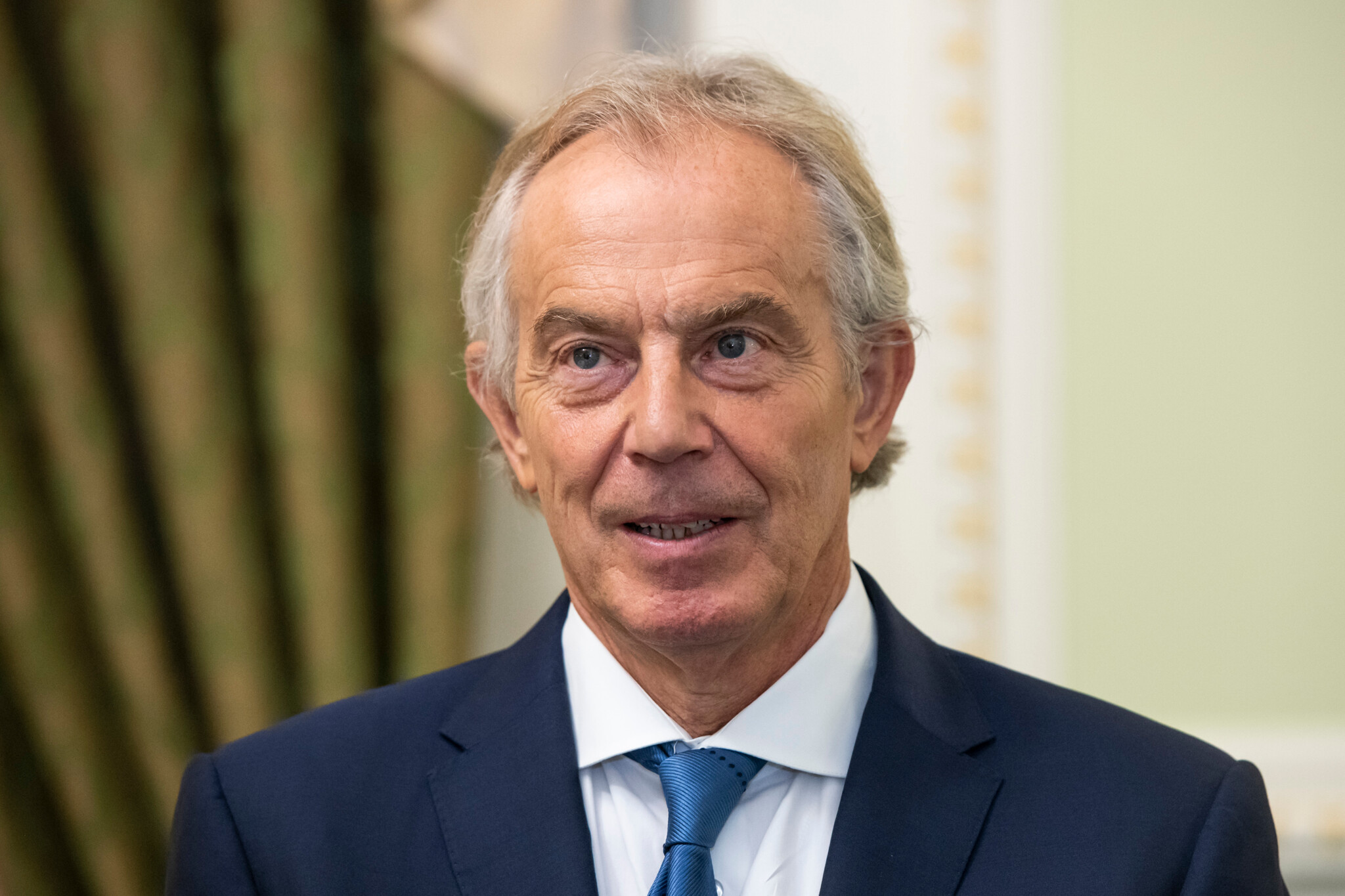Islam came into contact with Hellenistic ideas early on in its history, as it expanded by conquest across the Middle East and North Africa. The Muslim conquerors initially incorporated this Athenian inheritance into their world view.
The Mu’tazilites school of Islamic thought, which emerge in 8th century Basra and Baghdad, engaged deeply with Hellenistic philosophy, particularly Aristotelian and Neoplatonic ideas, integrating them into Islamic theology. The Mu’tazilites were rationalist, emphasizing human reason and free will.
But between the 9th and 11th centuries, Islam went in a decidedly different direction. The Ashʿarite school of Islamic theology, founded by Abū al-Ḥasan al-Ashʿarī in Basra, Iraq, began to assert the primacy of revelation over reason. Under the influence of al-Ghazali (d. 1111 CE), the Asharite school of Islam became predominant within Sunni Islam. It rejected the notion of revelation through reason. Instead, the Asharite school insisted on revelation over reason.
Ashʿarite school of Islamic theology, founded by Abū al-Ḥasan al-Ashʿarī in Basra, Iraq, began to assert the primacy of revelation over reason. Under the influence of al-Ghazali (d. 1111 CE), the Asharite school of Islam became predominant within Sunni Islam. It rejected the notion of revelation through reason. Instead, the Asharite school insisted on revelation over reason.
Al-Ashari taught that the world did not operate according to natural laws, that needed to be understood by applying reason. Everything instead operates through a constant process of divine intervention.
Such a metaphysical system leaves little room for critical thought. Nor can there be cause and effect, since everything is constantly at the command of the divine.
According to Asha’rite teachings, God does not command certain behavior from us because it is good. It is good because He commands it. Morality does not exist separately from God.
In the Judeo-Christian tradition, by contrast, there is objective morality. God commands us to do what is good because it is good, not because he commands it.
“So what?”, you might say. “What do these abstract theological questions have to do with anything today?”
Rather a lot, actually. Without an understanding of cause and effect, how can there be scientific progress? The Sunni Muslim world has seen little significant scientific innovation since the Ash’arite theological dominance began seven centuries ago.
Of course, plenty of Muslims schools of theological thought have emerged in that time. Today Salafists or Wahhabists have an number of differences with any Ash’arists. But like the Ash’arists, these subsequent schools of Islamic thought too are also anti-reason – infact even more so.
Without much room for critical thought, the Muslim world has intellectually stagnated. According to the United Nations Development Program’s Arab Human Development Report in 2003, Spain translated more books into Spanish in one year than the entire Arab world has translated in several centuries.
Muslim scholarship often lacks room for genuine inquiry, and study rarely fosters open debate. Knowledge acquisition is not seen as a path to progress; instead, the prevailing view holds that all essential truths have already been revealed.
In WEIRD societies, morality is rooted in objective, abstract principles, encouraging moral reasoning. There is plenty of scope for moral reasoning, which might in turn partly explain why WEIRD people have higher levels of impersonal trust.
In contrast, Islamic theology equates evil with what is forbidden and good with obedience to God’s external commandments. This leaves little room for abstract moral reasoning, which is the bedrock of so much high-trust behavior.
In contrast, Islamic theology equates evil with what is forbidden and good with obedience to God’s external commandments. This leaves little room for abstract moral reasoning, which is the bedrock of so much high-trust behavior.
In Islam there is little distinction between law and morality. As Robert Reilly suggests, in “The Closing of the Muslim Mind”, “law is morality”. This explains the prominence of jurisprudence in Sunni Islam.
Western democracies base their political order on reason and free will. Islam as an ideology regards democracies as their enemies. Man-made law arrived at through reason and deliberation is a form of shirk, or blasphemy. The law of man cannot be placed on the same level as the law of God.
A quarter-century ago, the United States invaded Iraq. The West’s universalist elites at the time – certain as to the oneness of human nature – were convinced that dictators like Sadam Hussein were all that stood in the way of democracy in Iraq and elsewhere. Remove the dictators and the Middle East would be more like the West.
How wrong they were. That Iraq was not a democracy was not merely down to the fact it was run by a dictator. It was run by a dictator because of the culture and values of the people there.
The former British Prime Minister, Tony Blair, a leading supporter of the invasion of Iraq, has more recently acknowledged that “many millions” of Muslims do indeed hold views “fundamentally incompatible with the modern world.” Universalist theory eventually meets Muslim reality.

Tony Blair has admitted that “many millions” of Muslims hold beliefs incompatible with Western values. Long ensconced in his ivory tower, he remains just another politician insulated from the consequences of the progressive policies he helped create.
Having at last understood something they ought to have perhaps appreciated several decades ago, the solution of Blair and others has been to call for an Islamic reformation.
If only, they suggest, Islam could reconcile reason with revelation. If only there was some sort of St Thomas Aquinas-type figure to show that Islam was compatible natural laws, or some notion of objective morality.
I can’t help noticing that Muslims who say Islam needs a reformation usually say what they say in the West, often as exiles. There seems precious little chance of any Islamic reformation among Muslims in the Muslim world.
Maybe Islam has already had its reformation, or at least produced its Luther in the form of Ibn Taymiyyah? This fourteenth century Islamic scholar rejected the Asharite inheritance, but not to replace it with anything Western. Maybe Islam has already been reformed but in a way that makes it ever less compatible with the way we live in the West?
Perhaps Islam is not only ultimately incompatible with democracy. Islamists specifically seek to destroy the United States, the embodiment of the democratic ideal.
Rather than seeking to change Islam, we need policy makers in the West prepared to change the way that the West engages with it.
In 2017, UAE Foreign Minister Sheikh Abdullah bin Zayed Al Nahyan issued a stark warning. He cautioned that indecision, political correctness, and overconfidence in understanding Islam and the Middle East could turn the West into a breeding ground for radical extremism. “There will come a day,” he said, “when we will see far more radicals, extremists, and terrorists coming from Europe because of a lack of decision-making… or assuming they know the others far better than we do.”
Return of the Strong Gods

Since the end of the Second World War, the West’s universalist elites have been besotted by the idea of an “open society”. In the wake of World War II, Western elites, influenced by Karl Popper’s 1945 book about The Open Society & Its Enemies, sought to prevent totalitarianism by rejecting these nationalism, religion and traditional moral values, each of which they associated with associated with fascism, militarism, and racism.
For half a century, we have been governed by people that automatically favor cultural openness over collective identities, advocating a shift from “truth” to “meaning” and from conviction to critique. This has led, Reno suggests, to a “disenchantment” of Western culture, eroding social cohesion.
In place of Strong Gods, our elites have worshiped the Weak Gods of tolerance, diversity, and relativism, weaken communal bonds, leaving societies atomized and nihilistic.
America needs leaders that apply public policies that emphasize the role of family, faith, and American exceptionalism.
Here are five steps American needs to take to preempt the further emergence of radical Islam in America:
1. Moral rearmament: Proclaim Western exceptionalism
In his 1983 “Evil Empire” speech, Ronald Reagan boldly confronted the Soviet Union, not just with military strength but with moral conviction. By calling the USSR an “evil empire,” he championed the Western way of life—its freedoms, values, and respect for individual dignity—over Soviet oppression. This moral clarity was as powerful as any weapon, rallying the West and its allies in the fight against communism.
Today, America must reclaim this confidence, proudly declaring the superiority of its way of life.
Leaders should unapologetically affirm that the American system, rooted in liberty and opportunity, is the best path for all who choose to live in America. This is, as Reagan famously declared, the “shining city on a hill”.
For Soviet dissidents like Natan Sharansky, imprisoned in Siberia’s brutal labor camps, Reagan’s words were a beacon of hope. Sharansky later recalled, “We dissidents were ecstatic. Finally, the leader of the free world had spoken the truth—a truth that burned in our hearts.” Reagan’s unwavering stance gave them strength, countering the moral ambiguity of earlier policies and inspiring them to endure.
Cultural relativism, often cloaked as intellectual sophistication, has silenced honest discussions about Islam in America. Fear of offending has eroded confidence in our values among many, especially the college-educated.
America needs leaders who will boldly proclaim Western exceptionalism. Doing so would give encouragement to the hundreds of thousands of Sharansky-like dissidents in America today who have had enough of the extreme leftist ideology they experience on campus and in the workplace.
2. Safeguard religious liberty.
Thanks to the First Amendment, Americans have religious freedom and the right to follow their beliefs. We must uphold that freedom, even if one person following their beliefs antagonizes others of a particular faith, including Islam.
The United States must uphold every individual’s right to critique, question, or abandon any religion, including Islam, without fear of retribution. This includes the freedom to explore and discuss the historical and theological dimensions of any belief system, such as the origins of the Quran or Islamic doctrines, openly and without restraint.
Why is this so important? Almost a quarter of Americans raised as Muslim leave the faith of their own free will, according to a 2017 Pew survey. Of these, about half identify as religiously unaffiliated (atheist, agnostic, or “nothing in particular”), 22% as Christian, and 21% with other faiths (e.g., Buddhism, Hinduism, Judaism, or “spiritual”). It would seem that American Muslims are far more likely to leave the faith than Muslims in Britain and Europe, although there is not a lot of data.
Of course, every school of Islam teaches that abandoning one’s faith is apostacy, a transgression punishable by death.
Public policy in the US must guarantee First Amendment protections for any Muslim wishing to abandon the faith, and ensure no threats, intimidation or worse, for those that freely decide to leave the faith.
3. Abolish the Diversity Immigrant Visa Program
America should terminate the Diversity Immigrant Visa Program entirely. Established in 1990, the program annually grants up to 55,000 visas to individuals from countries with low historical immigration to the United States through a random lottery system. This program admits an estimated 10,000–15,000 nationals from Muslim-majority countries like Egypt, Uzbekistan, and Algeria each year. Since its inception, an estimated 1.5 million individuals in total have been admitted through the program.
The program’s lottery system lacks rigorous criteria to assess applicants’ compatibility with American values, norms, or societal expectations. Instead, it grants visas randomly to people in places like Algeria, Pakistan and Afghanistan—without ensuring their ability or willingness to assimilate. The assumption behind this approach is that cultural integration will occur naturally, regardless of the backgrounds of those admitted.
During his first term, President Trump temporarily suspended the Diversity Immigrant Visa Program for certain high-risk countries, demonstrating the executive authority to act decisively.
He should now end the Diversity Immigrant Visa Program entirely. So what if some countries have more to offer America and are therefore overrepresented against others? Not all cultures are equal. Nor are they all equally compatible with the Western way of life.
4. Limit Visas from Muslim-Majority Countries
The United States should implement a policy to severely restrict visas issued to nationals of Muslim-majority countries, by establishing an annual cap on visas (including temporary, immigrant, and student visas) issued to nationals of Muslim-majority countries.
5. Comprehensive Cultural Compatibility Screening for U.S. Immigration
On April 8, 2025, the United States introduced a policy to restrict visas and other immigration benefits for individuals engaging in antisemitic activity. This policy reflects a growing recognition that ideological alignment is critical to successful integration and the preservation of American values.
Antisemitism is just one facet of a broader challenge posed by ideologies incompatible with Western democratic norms. Radical Islamist viewpoints, which may include support for terrorist organizations (e.g., Hamas, Hezbollah, or the Muslim Brotherhood), advocacy for Sharia law over secular governance, or rejection of core American principles such as free speech and religious pluralism, pose similar risks to cultural cohesion and national security.
The United States should establish a comprehensive cultural compatibility screening process for all visa applicants, green card seekers, and candidates for other immigration benefits, including lawful permanent residency. There should be an expanded vetting to assess applicants’ support for radical Islamist ideologies, including but not limited to endorsement of terrorist organizations or activities (e.g., Hamas, Hezbollah, Palestinian Islamic Jihad, or the Muslim Brotherhood), advocacy for Sharia law as a replacement for secular governance, rejection of core Western values, such as freedom of speech, religious pluralism, gender equality, or democratic principles.
Douglas Carswell is the President & CEO of the Mississippi Center for Public Policy. A proud immigrant who has integrated to life in America, he was previously a British Member of Parliament and co-founder of the official Brexit campaign.




Comments (1)
Only supporting or founding members can comment on our articles.